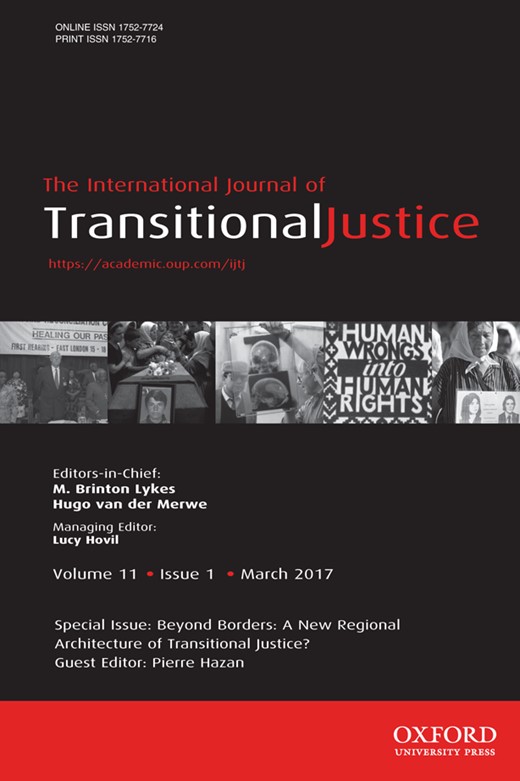-
Views
-
Cite
Cite
Franziska Boehme, ‘We Chose Africa’: South Africa and the Regional Politics of Cooperation with the International Criminal Court, International Journal of Transitional Justice, Volume 11, Issue 1, March 2017, Pages 50–70, https://doi.org/10.1093/ijtj/ijw024
Close - Share Icon Share
ABSTRACT∞
This article examines state cooperation with the International Criminal Court (ICC) through a case study of South Africa’s non-arrest of ICC suspect-at-large, Sudanese president Omar al-Bashir, in June 2015. Al-Bashir’s visit to South Africa brings attention to the question of why initially Court-supportive countries fail to cooperate with the ICC. Confronted with noncooperation pressure by the African Union (AU), South Africa faced a loyalty conflict in which it had to choose between its commitment to the AU and its commitment to the ICC. I argue that the South African executive’s non-arrest decision prioritized the country’s regional political reputation over its global reputation as a human rights supporter. By investigating a specific cooperation incident years after South Africa’s initial commitment to the ICC, the article highlights the temporal dimension of compliance. Incidents like these can point to potentially new perspectives on compliance and noncompliance.




Comments